The National Cancer Control Program
Spearheading health sector coordination, policies, capacity building, planning, monitoring and evaluation in the fight against cancer
Overview
The National Cancer Control Program is designed to reduce cancer incidence, mortality and improve the quality of life of cancer patients in Kenya through evidence-based strategies for prevention, early detection, diagnosis, treatment and palliation.
The program operates under the five key pillars. These include Cancer Prevention and Early Detection, Cancer Imaging, Pathology and Laboratory Medicine, Cancer Treatment, Palliative Care and Survivor ship, Advocacy, Partnerships, Coordination, and Financing, Strategic Information, Registration, Surveillance and Research.
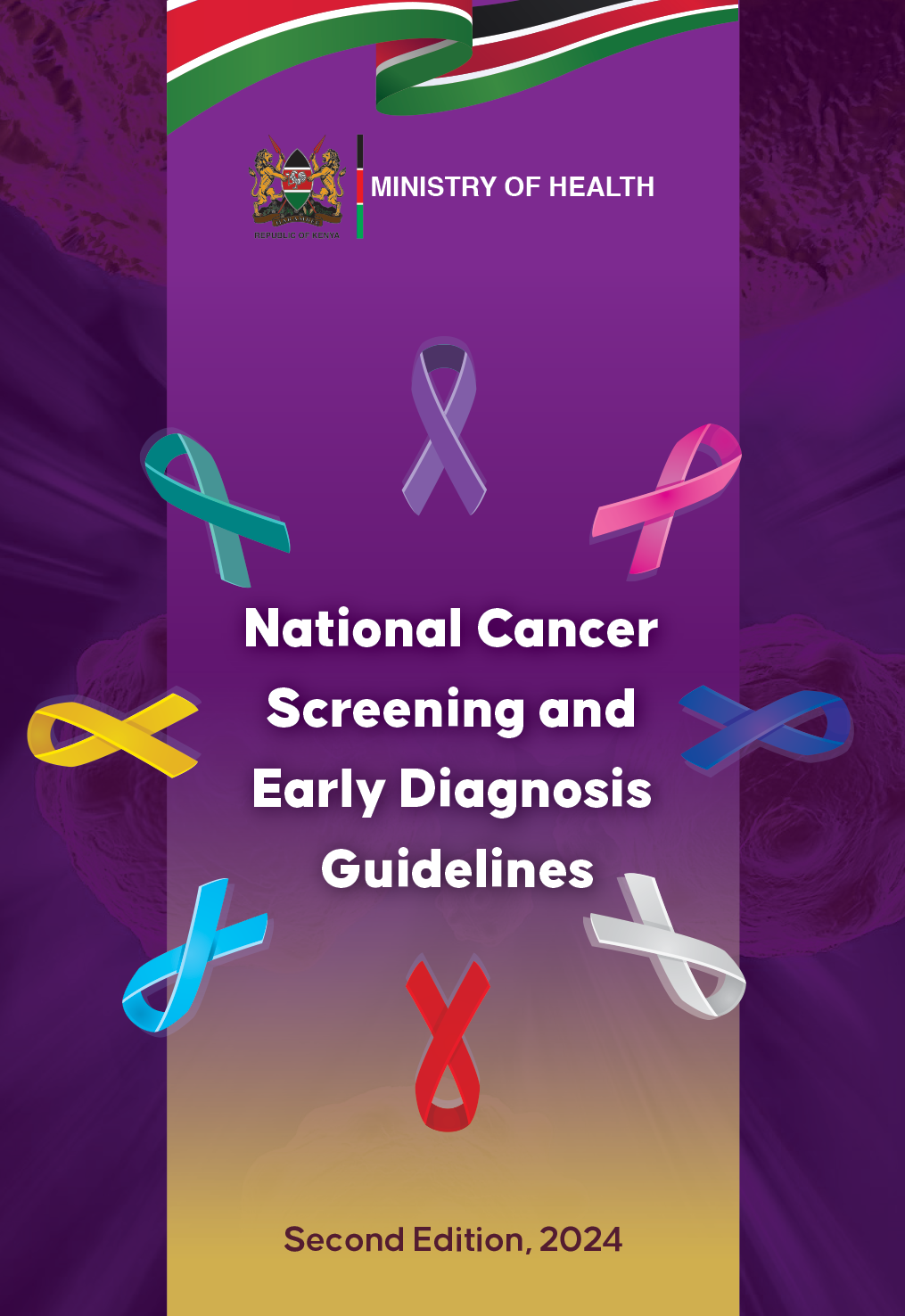
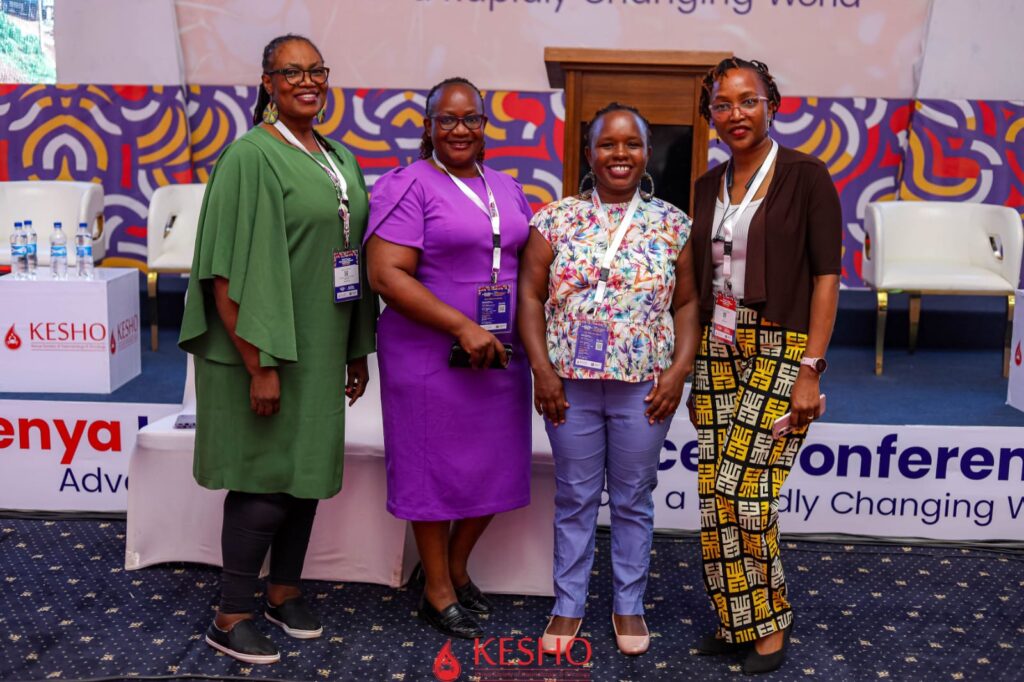
Welcome To National Cancer Control Program (NCCP)
The National Cancer Control Program (NCCP) is a Unit under the Division of Non-Communicable Diseases at the Ministry of Health in Kenya. The program engages in the development of policies, guidelines, capacity building and training materials aimed at advancing cancer prevention, screening, diagnosis, care, treatment, survivor ship and technical support to counties. Our mission is to reduce cancer-related morbidity and mortality while enhancing the quality of life for individuals affected by cancer. We strive to build a healthier nation where cancer control is a priority.
Cancer control aims to reduce the incidence, morbidity and mortality of cancer and to improve the quality of life of cancer patients in a defined population, through the systematic implementation of evidence-based interventions for prevention, early detection, diagnosis, treatment, and palliative care.
In Kenya, the implementation of the National Cancer Control Plan involves various entities and stakeholders. The Ministry through the NCCP spearheads the coordination and oversees the execution of the plan. Within the Ministry, different directorates, units and SAGAs support specific aspects of cancer control, including prevention, treatment, palliative care, and public health initiatives related to cancer.
Additionally, various governmental and non-governmental healthcare facilities, both at the national and regional levels, contribute to implementing different aspects of the plan. These facilities provide diagnostic services, treatment, and patient care.
Civil society organizations also play a significant role in implementing aspects of the plan. They often focus on raising awareness, providing support to patients and their families, and advocating for policy changes and resource allocation.
Collaboration among these entities is crucial for effective implementation, given the multifaceted nature of cancer control strategies outlined in the National Cancer Control Plan.
NCCP Focus Areas
News & Feeds
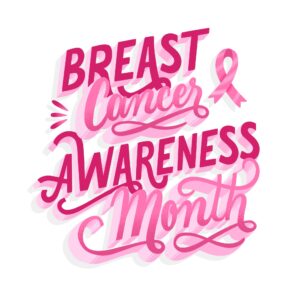
Breast Cancer Awareness Month
Breast cancer is the most common cancer affecting women worldwide, and the leading cancer among Kenyan women.
Early detection makes all the difference.
#AfyaYanguJukumuLangu
#BreastCancerAwarenessMonth
#ZuiaCancer

Did You Know?
- 85% of breast cancer cases occur without family history.
- Only 10–15% are linked to genes.
Your lifestyle choices, like staying active, avoiding alcohol & tobacco, can lower your risk.
Take control today!
#AfyaYanguJukumuLangu
#ZuiaCancer
#Lifestylechoices
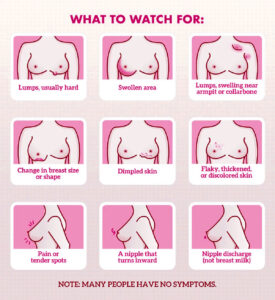
Signs and Symptoms
Not all lumps are cancerous, but any change in your breast should be checked by a health worker. Possible #BreastCancer symptoms:
🔹 Lump/thickening in breast or armpit
🔹 Breast shape/size change
🔹 Skin dimpling/redness
🔹 Nipple change/discharge (esp. with blood)
🔹 Pain in breast/armpit
See a doctor for any new changes; early action saves lives!
#KnowTheSigns
#EarlyDetection
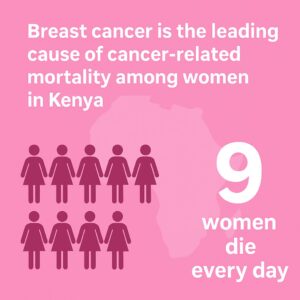
Breast cancer is the leading cause of cancer-related mortality among women in Kenya, with 9 women dying every day from the disease. It accounts for one in every four cancers diagnosed among Kenyan women.
#AfyaYanguJukumuLangu
#NitapimaMatiti
#BreastCancerAwarenessMonth

Practise Self-Care
Being diagnosed with breast cancer can be overwhelming. Be gracious with yourself, it’s okay not to be okay.
Losing a breast comes with many emotions; allow yourself to feel them and move through that phase at your own pace.
Practise self-care and give yourself permission to pause when you need to.
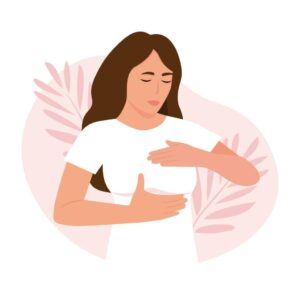
Breast Self Examination (BSE)
Have you checked your breasts this month? A simple self-exam can make a difference, so take action today.
Follow this link for more information: https://youtu.be/WipfLU6Ztwk
#AfyaYanguJukumuLangu
#NitapimaMatiti
#BreastCancerAwarenessMonth
#ZuiaCancer
Our Partners








Through strong partnerships and stakeholder collaboration,
our impact extends across all 47 counties. This broad reach has been instrumental in expanding cancer screening programs and improving access to care for patients nationwide.
Head Office
Ministry of Health
Division of National Cancer Control Program
P.O. Box:30016–00100, Nairobi.
Email: headnccp@gmail.com
